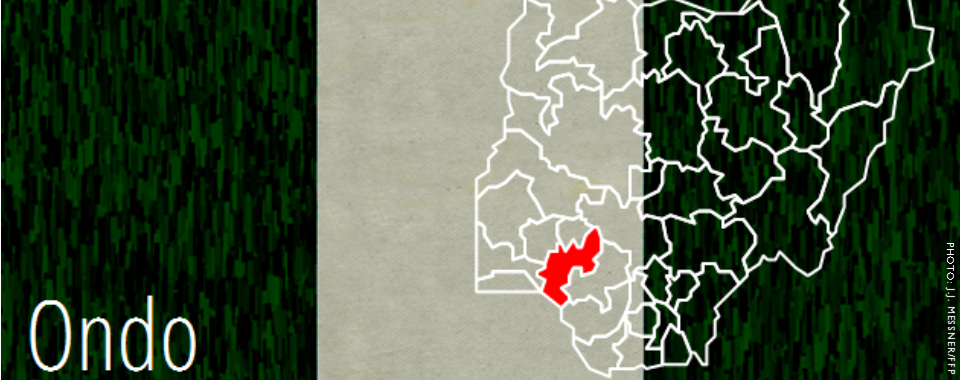BY PATRICIA TAFT*
Ondo state has a population of approximately 3.44 million according to the most recent census (2006). The majority are of Yoruba descent, with a sizable minority of those from Ijaw subgroups, particularly along the coast. Ondo derives most of its revenue from the production of cocoa, palm oil, rubber, lumber, and cassava. Approximately 65% of the labor force is employed in the agrarian sector. The state is also rich in oil and minerals.
On a per capita basis, violence in Ondo was relatively low in comparison to the other Niger Delta states according to Nigeria Watch data. It did, however, see a gradual increase in reported insecurity throughout 2012-2014, as reported by multiple sources.
Governor Olusegan Mimiko (Labour Party) who was re-elected in October 2012, subsequently announced plans to build refineries, petrochemical and fertilizer plants and signed a $3.3 billion deal with Dangote Group, the largest manufacturing conglomerate in West Africa. After the 2012 gubernatorial election, the losing party raised concerns about alleged election irregularities and intimidation.
In early 2014, most incidents involved domestic and interpersonal violence. In May, a clash between rival cult groups also left one person shot dead. Overall, much of the violence in Ondo state was related to instances of petty crime and some gang violence although fatalities associated with kidnappings for ransom appeared to be on the rise.
This Conflict Bulletin provides a brief snapshot of the trends and patterns of conflict risk factors at the State and LGA levels, drawing on the data available on the P4P Digital Platform for Multi-Stakeholder Engagement (www.p4p-nigerdelta.org).
The summaries draw on data collected by FFP’s UnLocK, the Council on Foreign Relations’ NST, WANEP Nigeria, CSS/ETH Zurich, Nigeria Watch, and ACLED integrated on the P4P platform.
* Marcella Aguirre also contributed to this report.
